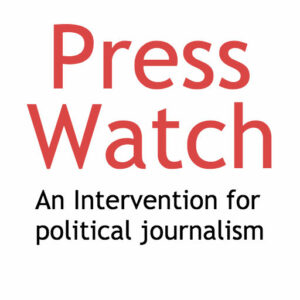The root cause of this journalistic dysfunction is that too many reporters have embraced the toxic presumption that any anti-Gaza-war protest is inherently antisemitic, and that any such protest legitimately makes Jewish students feel unsafe.
That’s actually a grotesque viewpoint: it both smears peaceful protesters (many of whom are Jewish) and trivializes real antisemitism.
Antisemitism is a serious problem. Defining it properly is important. Calling for the death of Jews is antisemitic. So is bias, stereotyping, using antisemitic language, and Holocaust denial.
But calling for a cease fire in Gaza, or divestment from weapons manufacturers, or freedom for Palestinians, or even the end of apartheid in Israel – that is not antisemitic. That is making a political statement shared by many Jews.
Certain chants have been unfairly demonized. Calling for Palestinians to be free from the river to the sea is not synonymous with wanting to drive the Jews into the sea, which would certainly be antisemitic. It can simply be a cry for freedom for all Palestinians. Similarly, “long live the intifada” is about resistance, not about killing Jews.
And empathizing with the suffering of Gazans in no way implies anything like an endorsement of the horrific Oct. 7 massacre by Hamas, or the ongoing hostage-keeping.
And yet, the presumption of antisemitism underlies almost all the mainstream-media coverage, which, like
this New York Times story, emphasizes “
chaos”, “turmoil,” and “the fears of many Jewish students.”
The coverage routinely
conflates the peaceful protests with a few truly antisemitic acts that have in most cases been committed by trolls attracted to the protests rather than by the college students themselves. (Student newspapers are making the distinction that the MSM isn’t.)
College students giving a damn about the suffering of others – and doing something about it by protesting and committing civil disobedience – is a long and admirable American tradition. If these students were protesting on behalf of Ukraine, or against hunger, the press coverage – if there were any at all – would be positive.



 just great news
just great news


